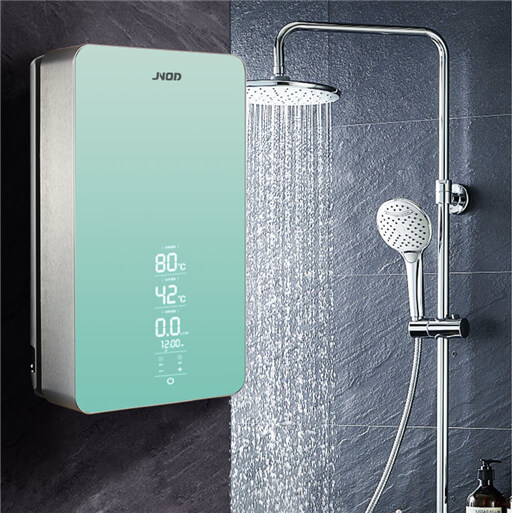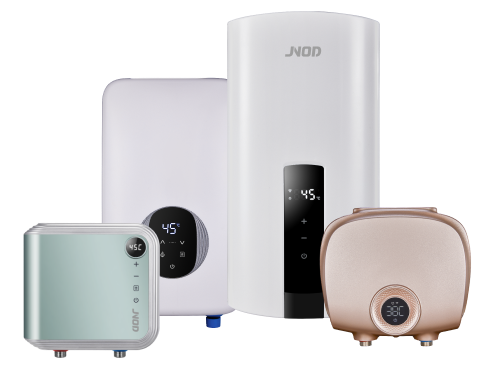A hot water heater is an essential appliance in many households. From tankless water heaters to the more conventional tanked variants, homeowners have quite a few good options for types of water heaters. Distinguished by fuel source, there are propane, gas, electric and solar water heaters. Each type of water heater has its unique features, pros, and cons, but electric water heaters stand out distinctly. Curious about how they work? Well, these heaters utilize an electric resistance coil to warm up water. When you turn on the faucet for some nice hot water, it’s this coil that’s been doing the heavy lifting. Here we will talk about the benefits and disadvantages of electric water heaters.
Advantages of Electric Water Heaters
Electric water heaters are more than just vessels that provide hot water. They come with a plethora of benefits that make them a preferred choice for many homeowners.
Fewer Risks Involved
When we talk about the safety of water heaters, electric ones really shine as the safe and dependable option. A big plus is that there are no gas lines involved. They eliminate safety concerns associated with gas models, such as the pilot light and gasoline combustion process. This means no worrying about possible gas leaks, a real and serious danger with gas water heaters. Just this feature alone lets homeowners breathe easy, knowing there’s no risk of gas troubles, which can be damaging and even deadly.
Also, electric water heaters don’t give off carbon monoxide, a lethal, invisible, and odorless gas. Carbon monoxide poisoning is a real danger with gas water heaters that aren’t working right, causing many ER visits and deaths every year in the US. Choosing an electric water heater nixes this danger, keeping everyone in the house safe and sound. This focus on safety makes electric water heaters a top pick for lots of families, putting the health and safety of their loved ones first.
Consistency and Reliability of Heating
Electric water heaters are champs at delivering that consistent, always-there heat, making sure you’ve got warm water on tap whenever you fancy. Unlike their gas counterparts, which can get fussy with things like gas supply hiccups or wild weather, electric heaters just keep on trucking. This is a game-changer for families, especially when winter hits and everyone’s vying for a hot water shower.
And when we chat about reliability, electric water heaters don’t just stop at heating. They’re built to go the distance, needing way less TLC than gas ones. So, homeowners can chill, knowing their electric buddy will keep rolling, serving up hot water with top-notch staying power. This rock-solid reliability and steady-as-she-goes performance make electric water heaters a smart pick for any pad.
Ease of Installation and Maintenance
Setting Up? Easy Peasy! Getting an electric water heater in proper installation? It’s pretty much a breeze. It occupies less space. No messing around with gas flues or fancy ventilation setups, which means you skip the headache (and the hefty bill) that often comes with the gas heater installation process. This means you can get your electric heater humming and hot water flowing in a snap, without any major hold-ups or drama.
And when it’s time for a little TLC? Electric heaters win again. No gas bits and bobs mean looking after them is a cinch. You won’t be wrestling with the fiddly maintenance that gas heaters often demand, saving you time, energy, and a few bucks on potential fixes. This low-maintenance vibe means your electric heater keeps doing its thing, dishing out hot water without needing constant check-ups or tricky tune-ups.

Leading JNOD Electric Water Heater
- Instant heating for immediate hot water without waiting
- Energy-efficient and space-saving design
Lower Initial Purchase Cost
When folks are hunting for a water heater, the price tag is usually a big deal. And here’s where electric heaters score big time. They usually come with a friendlier upfront cost compared to their gas cousins, making them a wallet-friendly pick for many households. And just because they’re easier on the pocket doesn’t mean they skimp on quality or performance. You’re still getting top-notch hot water without emptying your savings.
But wait, there’s more! The setup costs for electric heaters? Also a bargain. No need to fuss with gas lines or fancy vents, so you’re saving some extra cash on the install. All these savings, plus all the other perks we chatted about, make electric heaters a solid choice for anyone wanting a mix of efficiency, reliability, and bang for their buck.
Disadvantages of Electric Water Heater
While electric water heaters offer numerous advantages, it’s essential to consider their drawbacks to make an informed decision. Here’s a closer look at some of the challenges homeowners might face.
Higher Operational Costs
Electric water heaters have their perks, but they’ve got some downsides too. One biggie? The cost to run them. In a lot of places, electricity can cost more than natural gas. Over the long haul, this might mean chunkier monthly bills, especially when it’s cold out and everyone’s craving those warm showers.
You’ve got to check out the electricity prices in your neck of the woods and stack them up against gas costs. Even if buying and setting up the heater is a bargain, the monthly running costs might sneak up on you. This is super true if you’re in spots where electric prices are sky-high or jump around a lot.
Slower Heating Times and Recovery Rates
Another one of the disadvantages of electric water heaters? They can take their sweet time heating up, especially compared to those gas ones that can really crank up the heat quickly. So, if you’ve got a big family or you’re juggling a few hot water tasks at once, you might be playing the waiting game with an electric setup.
And then there’s the recovery rate – that’s the time it takes for the heater to warm up a new batch of cold water after you’ve used up the hot stuff. Electric models can be a bit on the slow side here. So, for homes where hot water is always in high demand, this could be a bit of a snag.
Dependency on Electricity
Electric water heaters, as the name suggests, rely entirely on electricity. This dependency means that during power outages, you might be left without hot water. In contrast, many gas water heaters can operate without electricity, ensuring a continuous hot water supply even during blackouts.
For those living in areas prone to frequent power outages or severe weather conditions, this is a significant consideration. It’s essential to weigh the convenience of electric water heaters against the potential inconvenience of not having hot water during power interruptions.
Limited Hot Water Supply in Larger Households
While those tankless electric water heaters can keep the hot water flowing non-stop, the ones with tanks can only hold so much. Once you’ve used up all the hot water in the tank, you’re on standby until it fills and heats up again. In big households or when everyone’s vying for hot water, this can mean some downtime on the hot water front. Gas water heaters, especially the big guys, can usually handle the heat demand more smoothly.
Cost Analysis: Initial, Operating, and Maintenance
The initial allure of electric water heaters lies in their affordable sticker price. Yet, it’s crucial to consider the broader expenses, such as potential electrical upgrades to support the new equipment. These added costs, although often overlooked, play a significant role in the overall investment.
Examining the ongoing costs, and the monthly energy expenditure is paramount. Despite electric heaters’ impressive energy efficiency, areas with elevated electricity rates may notice a spike in their bills. Understanding the specific energy consumption of your selected model is crucial. Opt for heaters with esteemed “energy-efficient” labels and consider the integration of solar panels, leveraging the power of the sun to counterbalance electricity costs and reduce your carbon footprint.
In terms of maintenance, electric water heaters excel with minimal upkeep requirements. Routine check-ins and occasional part replacements are typical, ensuring the unit’s longevity and consistent performance. Proper maintenance is a non-negotiable aspect to guarantee your investment’s value over time.
While contemplating a new water heater, the best way is to analyze all related costs – initial, operational, and maintenance. Prioritize models that promise energy efficiency, explore renewable energy sources, and ensure dedicated and timely maintenance. The financial commitment to an electric water heater is not merely a purchase; it’s an investment in consistent, reliable, and environmentally conscious hot water supply for your household tasks from laundry to cold water conversion, enhancing your home’s functionality and comfort.
Conclusion
Weighing the pros and cons of electric water heaters is essential to make an informed decision. While they offer numerous benefits, from safety considerations to ease of installation, there are also disadvantages of electric water heaters to consider, such as higher operational costs and dependency on electricity.
Future developments in the world of electric water heating are promising, with advancements in technology aiming to increase efficiency and reduce costs. As renewable energy sources become more prevalent, electric water heaters might become even more appealing, harnessing cleaner energy for our daily hot water needs.
